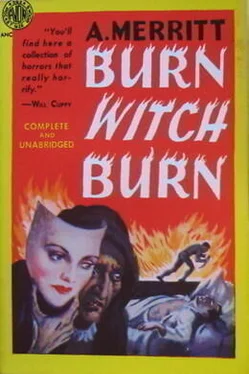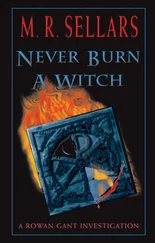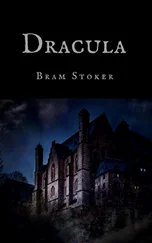Through the window came a fourth doll, all in spangled tights from neck to feet. It took a flying leap, landing beside the acrobat–doll. It looked up at me with grinning face, then bowed.
The four dolls began to march toward me, the acrobats leading, and behind them with slow and stately step, the spinster–doll and banker– doll–arm in arm.
Grotesque, fantastic, these they were—but not humorous, God—no! Or if there were anything of humor about them, it was that at which only devils laugh.
I thought, desperately: "Braile is just on the other side of the door! If I could only make some sound!"
The four dolls halted and seemed to consult. The acrobats pirouetted, and reached to their backs. They drew from the hidden sheaths their dagger–pins. In the hands of banker–doll and spinster– doll appeared similar weapons. They presented the points toward me, like swords.
The four resumed their march to my bed…
The red eyes of the second acrobat–doll—the trapeze performer, I knew him now to be—had rested on the chandelier. He paused, studying it. He pointed to it, thrust the dagger–pin back into its sheath, and bent his knees, hands cupped in front of them. The first doll nodded, then stood, plainly measuring the height of the chandelier from the floor and considering the best approach to it. The second doll pointed to the mantel, and the pair of them swarmed up its sides to the broad ledge. The elderly pair watched them, seemingly much interested. They did not sheath their dagger–pins.
The acrobat–doll bent, and the trapeze–doll put a little foot in its cupped hands. The first doll straightened, and the second flew across the gap between mantel and chandelier, caught one of the prismed circles, and swung. Immediately the other doll leaped outward, caught the chandelier and swung beside its spangled mate.
I saw the heavy old fixture tremble and sway. Down upon the floor came crashing a dozen of the prisms. In the dead stillness, it was like an explosion.
I heard Braile running to the door. He threw it open. He stood on the threshold. I could see him plainly in the green glow, but I knew that he could not see—that to him the room was in darkness. He cried:
"Lowell! Are you all right? Turn on the lights!"
I tried to call out. To warn him. Useless! He groped forward, around the foot of the bed, to the switch. I think that then he saw the dolls. He stopped short, directly beneath the chandelier, looking up.
And as he did so the doll above him swung by one hand, drew its dagger–pin from its sheath and dropped upon Braile's shoulders, stabbing viciously at his throat!
Braile shrieked—once. The shriek changed into a dreadful bubbling sigh…
And then I saw the chandelier sway and lurch. It broke from its ancient fastenings. It fell with a crash that shook the house, down upon Braile and the doll–devil ripping at his throat.
Abruptly the green glow disappeared. There was a scurrying in the room like the running of great rats.
The paralysis dropped from me. I threw my hand round to the switch and turned on the lights; leaped from the bed.
Little figures were scrambling up and out of the window. There were four muffled reports like popguns. I saw Ricori at the door, on each side of him a guard with silenced automatic, shooting at the window.
I bent over Braile. He was quite dead. The falling chandelier had dropped upon his head, crushing the skull. But Braile had been dying before the chandelier had fallen…his throat ripped…the carotid artery severed.
The doll that had murdered him was gone!
Chapter XV
The Witch Girl
I stood up. I said bitterly:
"You were right, Ricori—her servants are better than yours."
He did not answer, looking down at Braile with pity–filled face.
I said: "If all your men fulfill their promises like McCann, that you are still alive I count as one of the major miracles."
"As for McCann," he turned his gaze to me somberly, "he is both intelligent and loyal. I will not condemn him unheard. And I say to you, Dr. Lowell, that if you had shown more frankness to me this night—Dr. Braile would not be dead."
I winced at that—there was too much truth in it. I was racked by regret and grief and helpless rage. If I had not let my cursed pride control me, if I had told them all that I could of my encounter with the doll–maker, explained why there were details I was unable to tell, given myself over to Braile for a cleansing counter–hypnotization—no, if I had but accepted Ricori's offer of protection, or Braile's to watch over me while asleep—then this could not have happened.
I looked into the study and saw there Ricori's nurse. I could hear whispering outside the study doors—servants, and others from the Annex who had been attracted by the noise of the falling chandelier. I said to the nurse, quite calmly:
"The chandelier fell while Dr. Braile was standing at the foot of my bed talking to me. It has killed him. But do not tell the others that. Only say that the chandelier fell, injuring Dr. Braile. Send them back to their beds—say that we are taking Dr. Braile to the hospital. Then return with Porter and clean up what you can of the blood. Leave the chandelier as it is."
When she had gone I turned to Ricori's gunmen.
"What did you see when you shot?"
One answered: "They looked like monkeys to me."
The other said: "Or midgets."
I looked at Ricori, and read in his face what he had seen. I stripped the light blanket from the bed.
"Ricori," I said, "let your men lift Braile and wrap him in this. Then have them carry him into the small room next to the study and place him on the cot."
He nodded to them, and they lifted Braile from the debris of shattered glass and bent metal. His face and neck had been cut by the broken prisms and by some chance one of these wounds was close to the spot where the dagger–pin of the doll had been thrust. It was deep, and had probably caused a second severance of the carotid artery. I followed with Ricori into the small room. They placed the body on the cot and Ricori ordered them to go back to the bedroom and watch while the nurses were there. He closed the door of the small room behind them, then turned to me.
"What are you going to do, Dr. Lowell?"
What I felt like doing was weeping, but I answered: "It is a coroner's case, of course. I must notify the police at once."
"What are you going to tell them?"
"What did you see at the window, Ricori?"
"I saw the dolls!"
"And I. Can I tell the police what did kill Braile before the chandelier fell? You know I cannot. No, I shall tell them that we were talking when, without warning, the fixture dropped upon him. Splintered glass from the pendants pierced his throat. What else can I say? And they will believe that readily enough when they would not believe the truth—"
I hesitated, then my reserve broke; for the first time in many years, I wept.
"Ricori—you were right. Not McCann but I am to blame for this— the vanity of an old man—had I spoken freely, fully—he would be alive…but I did not…I did not…I am his murderer."
He comforted me—gently as a woman…
"It was not your fault. You could not have done otherwise… being what you are…thinking as you have so long thought. If in your unbelief, your entirely natural unbelief, the witch found her opportunity…still, it was not your fault. But now she shall find no more opportunities. Her cup is full and overflowing…"
He put his hands on my shoulders.
"Do not notify the police for a time—not until we hear from McCann. It is now close to twelve and he will telephone even if he does not come. I will go to my room and dress. For when I have heard from McCann I must leave you."
Читать дальше










